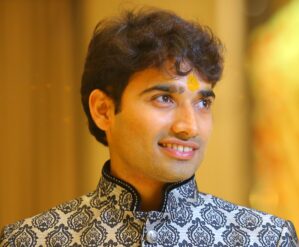FROM HEARTSTEPS TO HEARTBEATS: PERSONALIZED DECISION-MAKING

RAAZ DWIVEDI – HARVARD UNIVERSITY AND MASSACHUSETTS INSTITUTE OF TECHNOLOGY
ABSTRACT
Ever-increasing access to data and computational power allows us to make decisions that are personalized to users by taking their behaviors and contexts into account. These developments are especially useful in domains like mobile health and medicine. For effective personalized decision-making, we need to revisit two fundamental tasks: (1) estimation and inference from data when there is no model for a decision’s effect on a user and (2) simulations when there is a known model for a decision’s effect on a user. Here we must overcome the difficulties facing classical approaches, namely statistical challenges due to adaptively collected data and computational bottlenecks caused by high-dimensional models.
This talk addresses both tasks in two parts. First, I provide a nearest-neighbor approach for unit-level statistical inference in sequential experiments. I also introduce a doubly robust variant of nearest neighbors that provides sharp error guarantees and helps measure a mobile app’s effectiveness in promoting healthier lifestyle with limited data. For the second task, I introduce kernel thinning, a practical strategy that provides near-optimal distribution compression in near-linear time. This method yields significant computational savings when simulating models of cardiac functioning.
PAPERS:
Talk’s part 1 is based on counterfactual inference for sequential experiments (with some results from doubly robust nearest neighbors in factor models). Part 2 is based mainly on the paper kernel thinning.
BIO:
Raaz Dwivedi is a FODSI postdoc fellow advised by Prof. Susan Murphy and Prof. Devavrat Shah in CS and Statistics, Harvard and EECS, MIT respectively. He earned his Ph. D. at EECS, UC Berkeley, advised by Prof. Martin Wainwright and Prof. Bin Yu; and his bachelors degree at EE, IIT Bombay, advised by Prof. Vivek Borkar. His research builds statistically and computationally efficient strategies for personalized decision-making with theory and methods spanning the areas of causal inference, reinforcement learning, random sampling, and high-dimensional statistics. He won the President of India Gold Medal at IIT Bombay, the Berkeley Fellowship, teaching awards at UC Berkeley and Harvard, and a best student paper award for his work on optimal compression.


